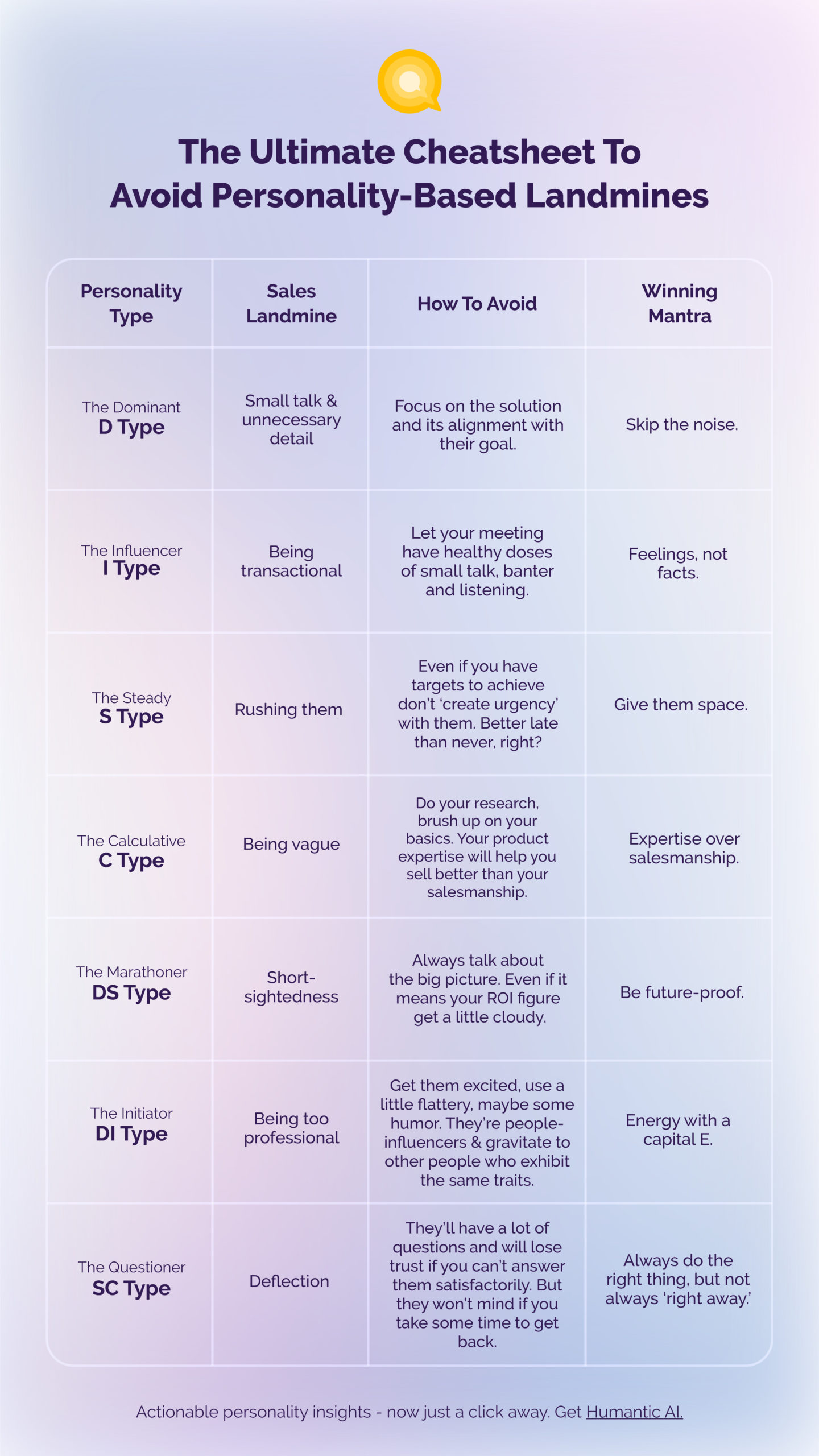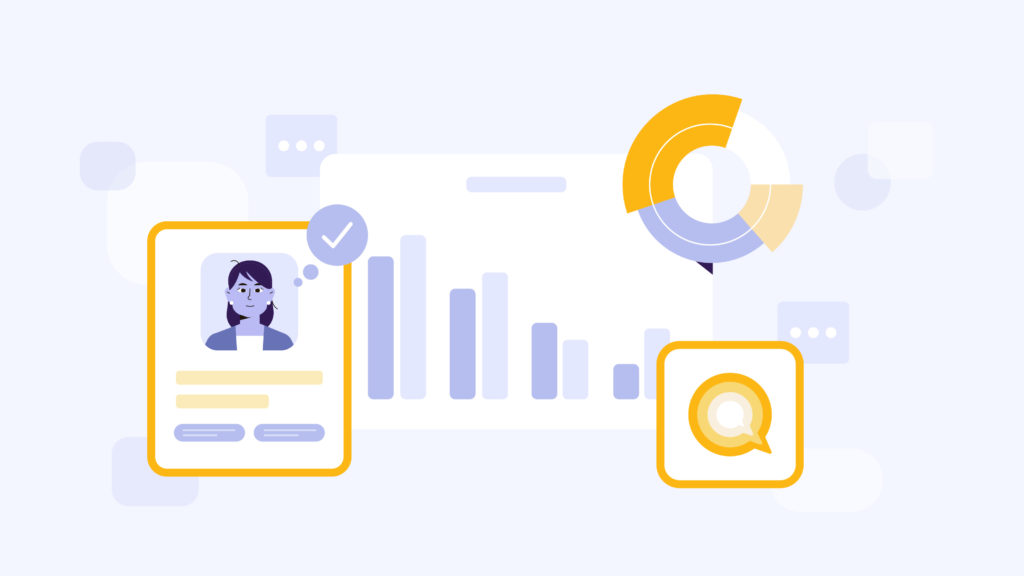Remember the sales call which seemed to be going well, until you said something and things immediately went downhill?
That seemingly inconspicuous thing was a big, glaring, red flag. Something which instantly changed the course of your meeting and sent all your efforts down the drain. Those are what we call Sales Landmines! As salespeople we are supposed to be relentless and we will continue to be, but even we know, there’s no sunshine at the end of the tunnel here – total devastation!
Unlike objections or even disinterest, there’s no recovering from a sales landmine. Once it’s done, it’s done
Hence, it is non-negotiable that we tiptoe our way across such landmines throughout the sales journey.
For a long time, we have tried to avoid these situations. The problem? We relied on our own intuition. We take an approach that we feel is right for our buyers instead of actually studying them and making an effort to understand what makes them tick. And for a long time, that was alright… because as salespeople, that’s really all we had. However, today, things are a little different: tools like Humantic AI have made it super-easy to understand a buyer’s personality with the click of a button.
Personality AI: the only way to avoid Sales Landmines
The easiest, and in fact, only way to avoid sales landmines is to pre-emptively understand what landmines one could expect from that particular buyer. Coincidentally, there’s a strong correlation between personality types and associated sales landmines.
Knowing what you should say to get your buyers attention is important, yes, but what’s doubly more important is knowing what you shouldn’t say to them i.e. the potential sales landmines.With personality AI, you get clear, actionable insights on your prospect’s (i) decision making traits, risk appetite and effective engagement techniques, among other things.
Luckily, Humantic’s Personality AI Assistant has you covered on that front as well.
In this post, we’ll break down how to identify potential sales landmines based on your buyer’s personality, and how to avoid them at all costs.
At the end of this post, you’ll find a nifty little cheat-sheet. But first, let’s walk through an example.
Example 1: David Dulany Drops His Enthusiasm
David Dulany is a sales development trainer and consultant. He is also the founder and CEO of “Tenbound” – a research and advisory firm dedicated to sales development.
Let’s say that I’m selling an automated payroll management platform to David. So far, I’ve had a moderately successful discovery call with him, and we’ve now set up a follow-up call to explore next steps.
Now, things seem to be going well… I decide to give my platform an ounce of credibility by offering some relevant social proof. I say
“You know, David, I was speaking to someone from my team who manages our LatAm sales, and guess what? Joel, your partner-in-crime from your OpenDNS days, has great things to say about us. He’s been using our platform for 2 years and he’s super happy with it. What do you think – should I facilitate a reunion before we get on our next call? Maybe it’ll add to your product conviction.”
Went for an ‘Aha moment’ and ended up with an ‘Uh-oh moment’
Immediately, I could sense the tides turning against me. I could feel David’s inquisitive nature turning stoic. What could I have possibly done wrong? I was just being friendly!
Now that would have been a good approach to use on a buyer with an I-type personality, but well… what was David’s personality anyway?
As an afterthought, I look him up on Humantic AI. And – surprise, surprise – this is what it says: reading between the lines comes naturally to them.

And that’s how I could have lost a potential $50k deal. And that’s why personality insights can’t be an afterthought 🙂
David is an objective, goal-oriented leader. In my approach, I would have come off as “way too friendly,” which DS personality types typically don’t respond to well. He would have assumed that the product I’m selling doesn’t have much inherent value to it, and that’s why I’m instead relying on relationships to sell it.
One buyer’s perfect sales pitch is another’s devastating landmine
Now, let’s take another example, with 2 potential buyers:
- Catherine, who has a C-type personality i.e., she’s a calculative buyer.
- Douglas, who has a D-type personality i.e., a buyer with a dominant personality.
Let’s say I make a sales pitch by taking an extremely detailed approach, getting into the nitty gritties, going as far as looping in a technical specialist to walk them through the algorithms behind the product’s functionality. Catherine, after doing a fair bit of her own research, would probably come back and say “this sounds useful, we’re ready to explore the next steps.”
However, with Douglas, the very same approach would turn out to be a sales landmine. As a pure D-type buyer, he wouldn’t want to analyze why a product works. He’d just want to know if it works. D-type buyers are averse to extremely analytical and calculative approaches, and they usually find ‘invented answers’ to be a waste of time.
If you give them an essay in response to a yes-or-no question, it’s going to make them squint. D-type buyers have the innate ability to figure things out, so it seems unnecessary and even a little suspicious when you walk them through how to figure things out – in extreme detail.
Sales landmines and personality types: A cheat sheet




